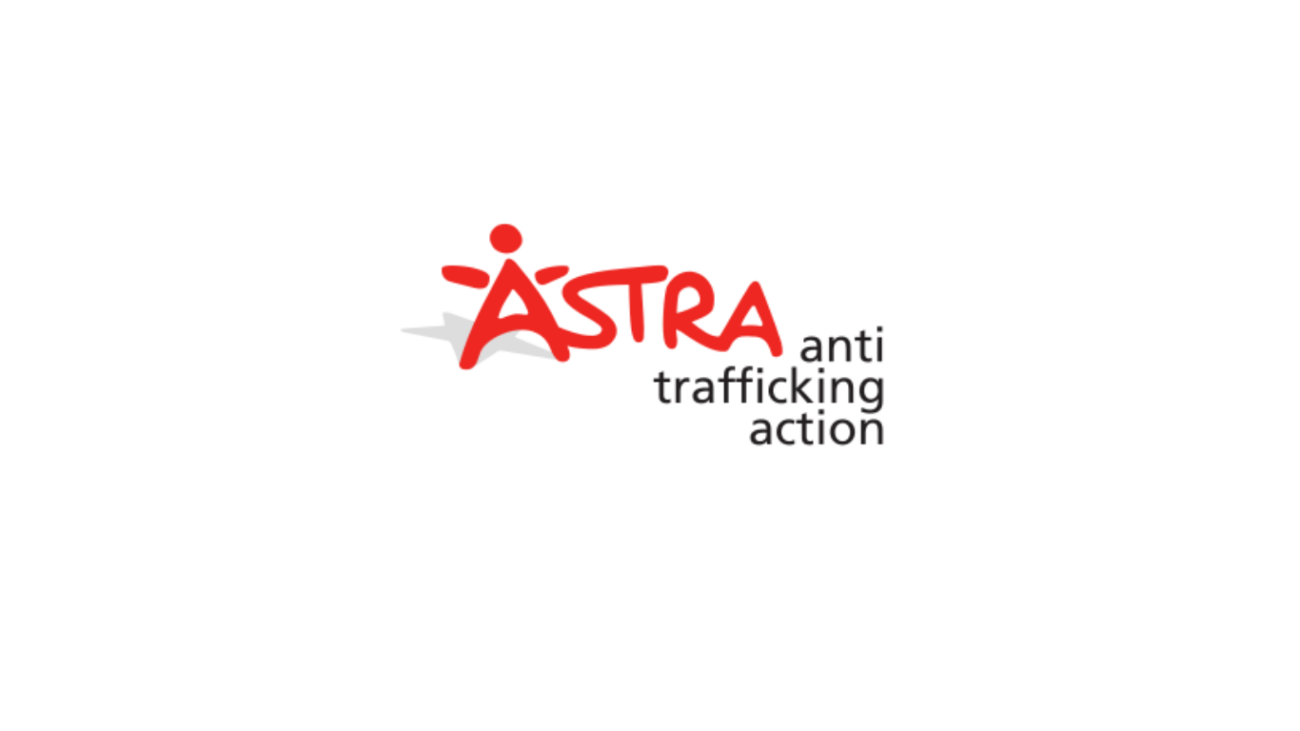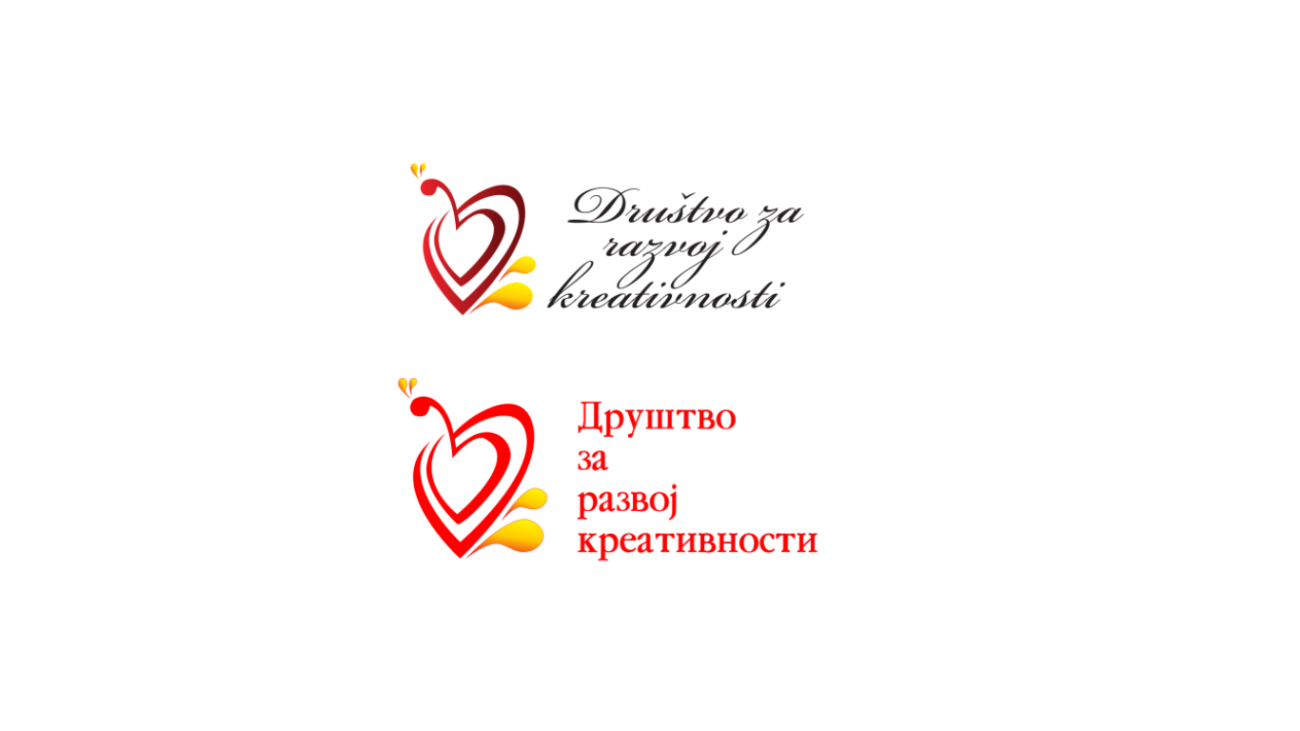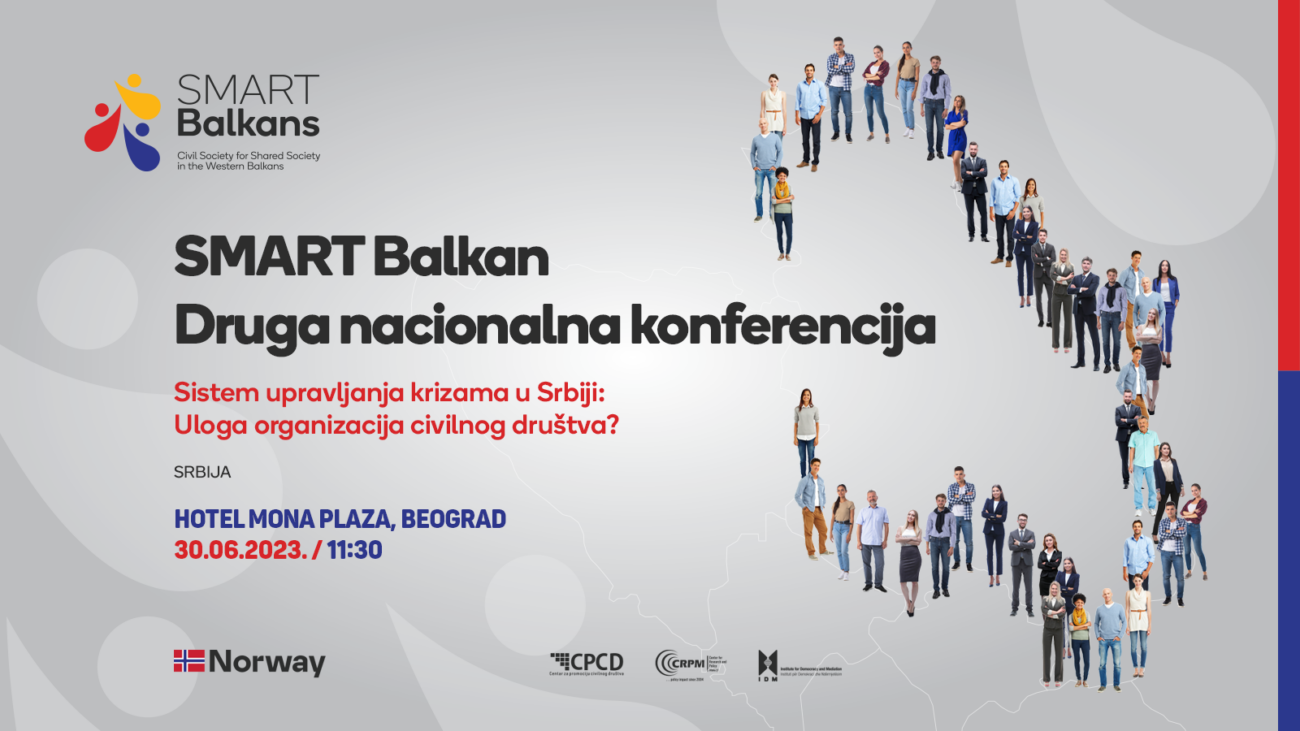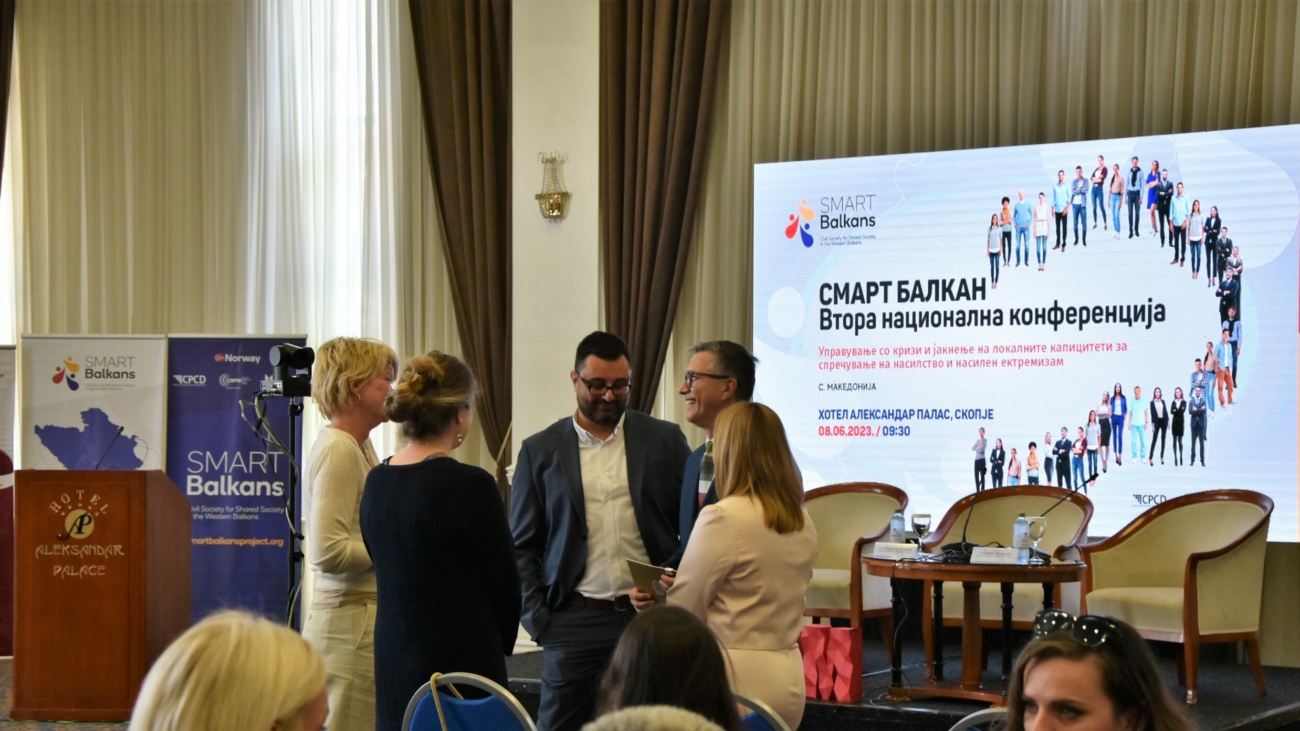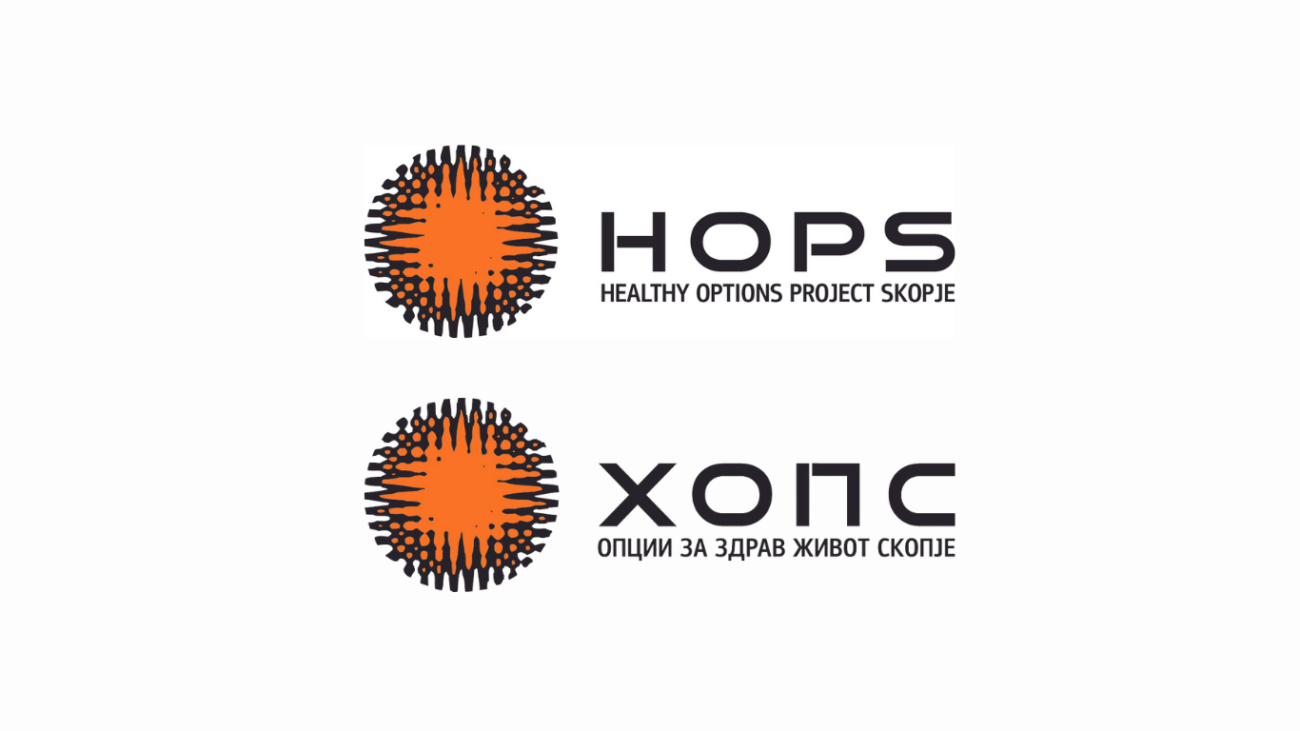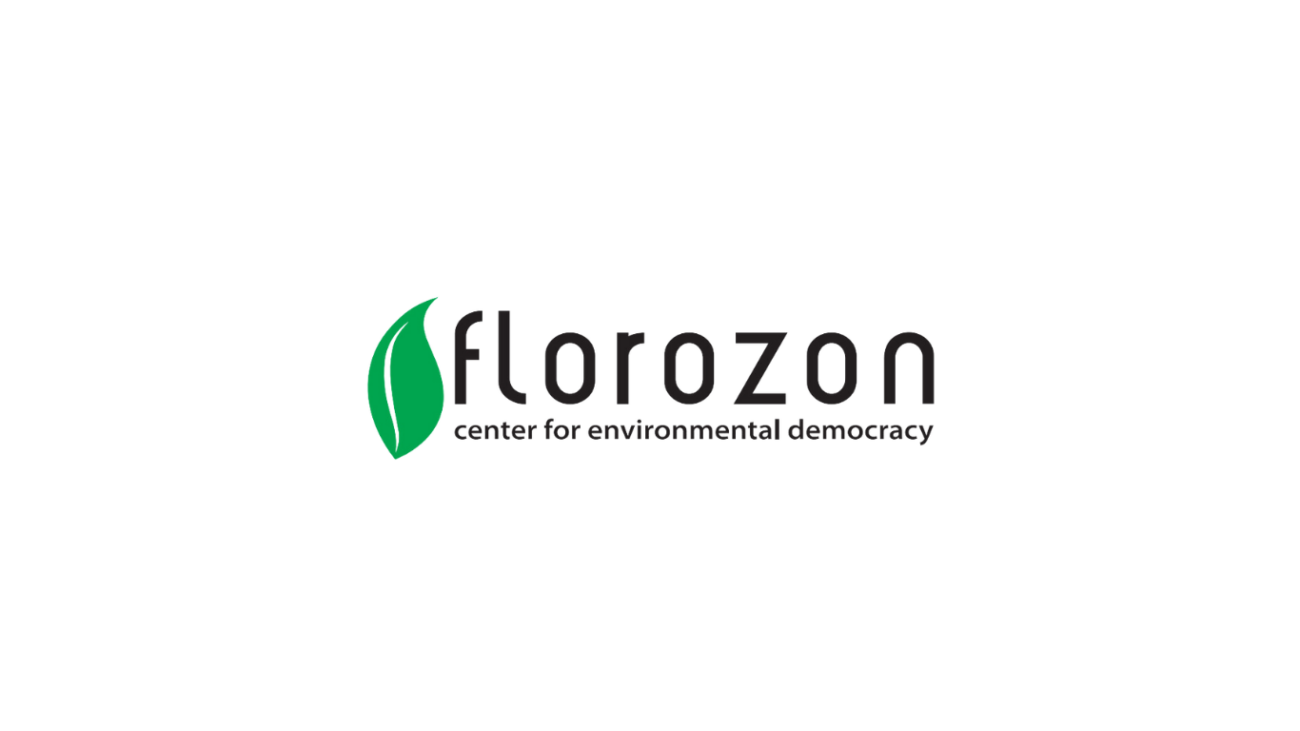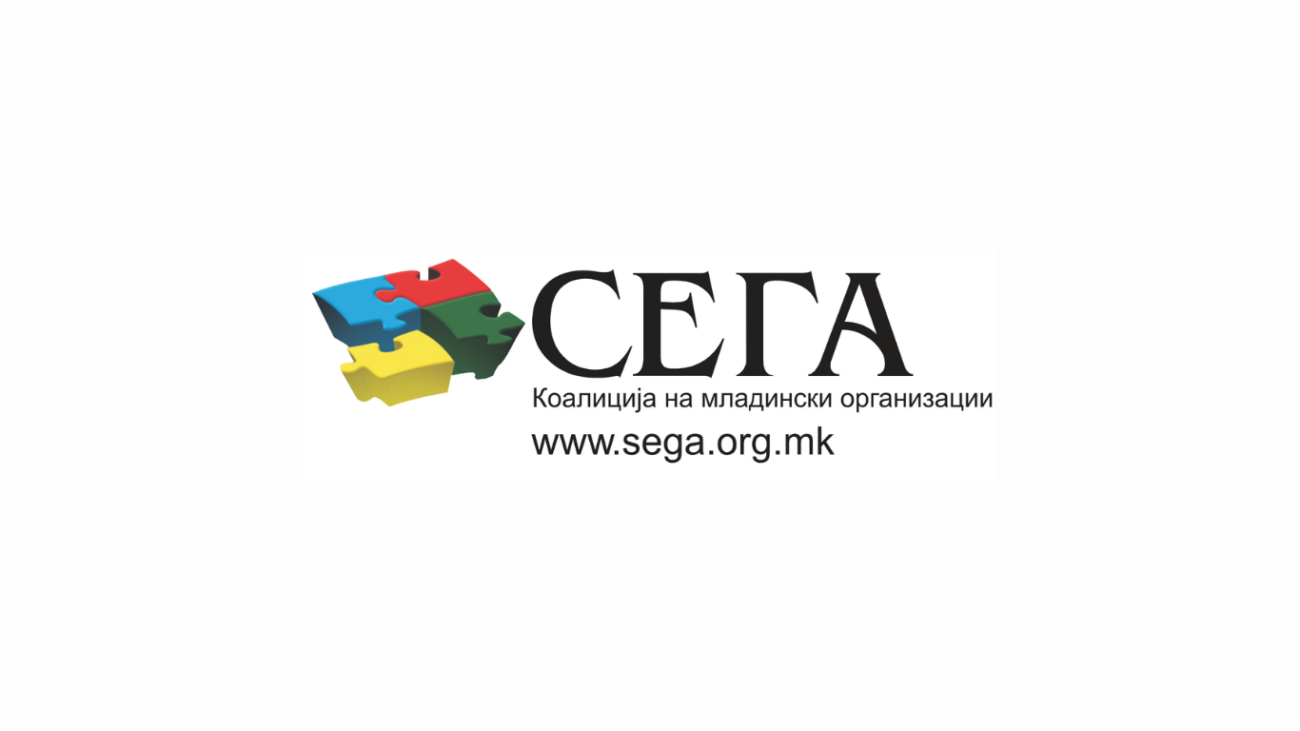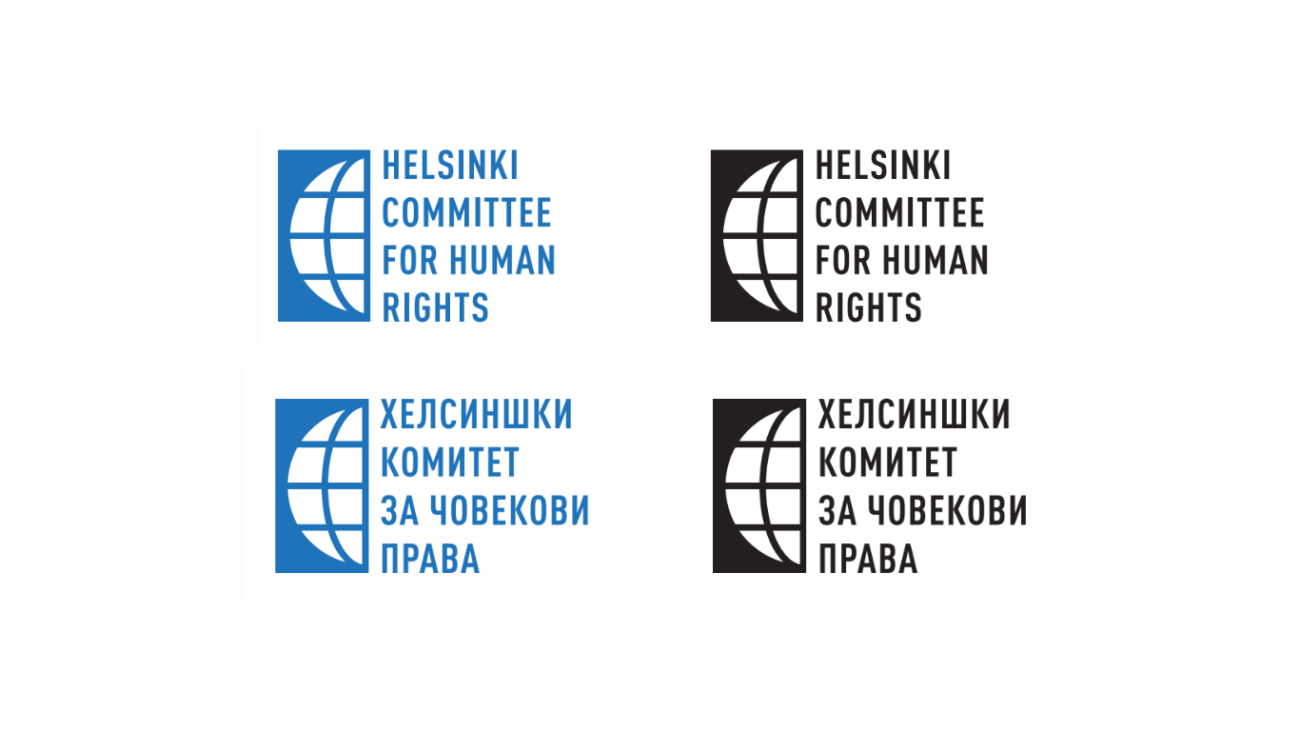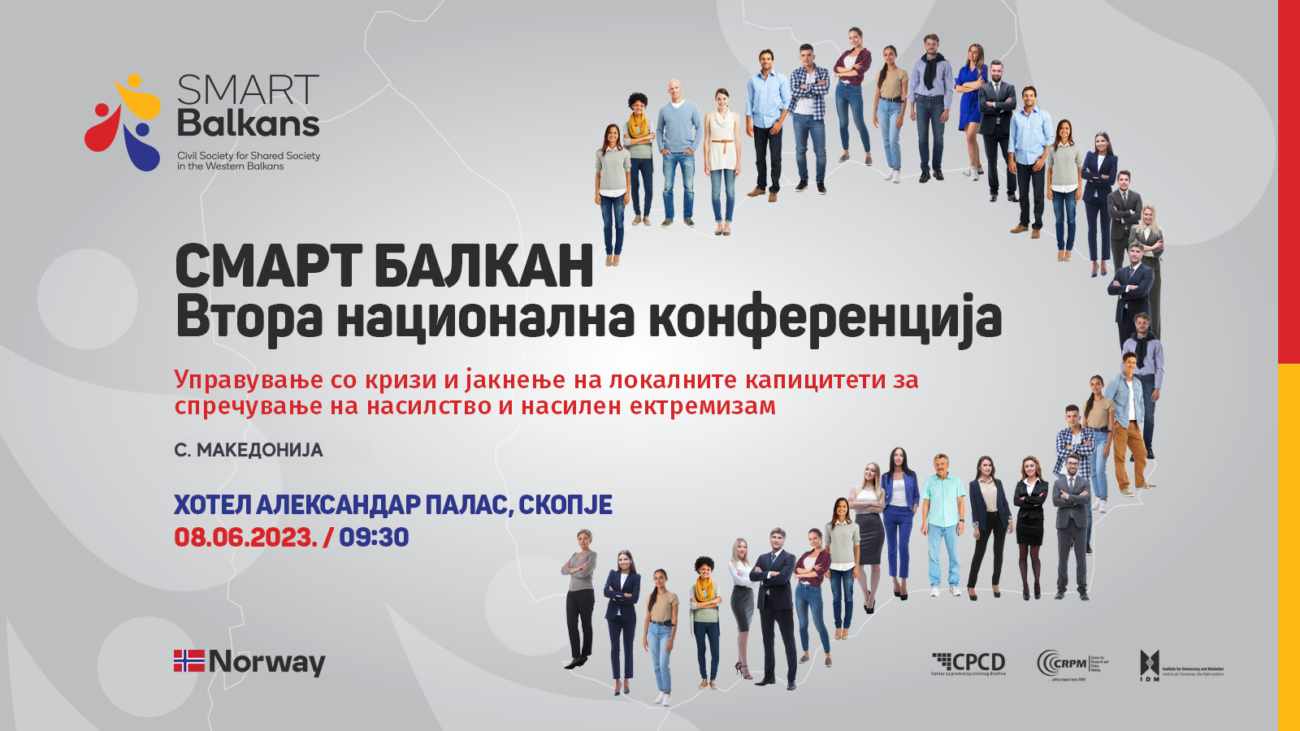Today, on 08.06.2023, the second National Conference in N. Macedonia titled “Crisis Management and Strengthening Local Capacities for the Prevention of Violence and Violent Extremism” was held at Aleksandar Palace Hotel, Skopje. This conference was organized as part of the SMART Balkans project, funded by the Ministry of Foreign Affairs of the Kingdom of Norway.
The Executive Directress of the Center for Research and Policy Making – CRPM stated that the civil society organizations recognize the needs of the various segments of Macedonian society and respond through the SMART Balkans project, offering them services, protection, prevention, capacity building, awareness raising, or advocacy on their behalf to change policies in accordance with their needs and reduce their vulnerability.
“If we examine the target groups with whom the organizations awarded grants work, we will notice that the primary beneficiaries are young people, women, particularly women victims of violence, the disabled, drug users, sex workers, and the most marginalized individuals who, due to exclusion, are more susceptible to the risks of radicalization leading to violent extremism. The response to the needs of these vulnerable categories is directly related to the security and stability of the country. An institutional response would enable a more resilient society in which, apart from equality in participation, equality of policy results would be advocated.” Risteska said.
Mrs. Hanne Malgaard, Deputy Head of Mission at the Embassy of the Kingdom of Norway in Belgrade emphasized that through the SMART Balkans programme, Norway provided grants for Macedonian organizations in value of almost 570.000 EUR.
“Through the SMART Balkans programme, we aim to empower and strengthen the voices of individuals and groups who advocate for positive change, promote transparency, accountability, good governance and democratic values, and contribute to the secure and stable development of their communities.”
Since the conference topics were focused on security issues, Mrs. Meldgaard addressed the tragic events in Serbia. “The whole region is faced with various security crises: youth violence, floods, fires, etc. There are also threats related to lingering effects of conflicts and raising extremism. Norway provides development assistance to the region and N. Macedonia for addressing many of these security challenges, through strengthening the rule of law, enhancing capabilities, transparency, inclusiveness and accountability of institutions, and promoting regional cooperation.” – Meldgaard expressed.
The Secretary General of the Government of N. Macedonia, Mr. Metodija Dimovski, congratulated the Center for Research and Policy Making and the partner organizations from Bosnia and Herzegovina and Albania for the efforts invested in implementing the SMART Balkan project and in building a free and democratic society.
“The countries of the Western Balkans face many challenges in the areas of the rule of law, the judicial independence, corruption, freedom of the media, social cohesion, and, of course, security. The contribution of the civil society sector is of fundamental importance for the development of democratic values. It is also necessary to establish a dialogue between state institutions and civil society organizations as an important prerequisite for successfully implementing changes.” – Dimovski said.
Mr. Dimovski emphasized that the Government of N. Macedonia is fully committed to improving the environment in which civil society works. In that direction, to ensure an encouraging and sustainable environment, amendments are being made to the Law on Civil Organizations and Foundations and the Law on Sponsorships. Additionally, the Secretariat for European Affairs, through a consultative process, is working on models for the inclusion of CSOs in EU accession objectives.
Two panel discussions took within the conference where the panelists addressed regional issues such as youth violence, natural disasters, and global security challenges in the Western Balkans.
At the first panel, in which Prof. Dragana Batic from the Faculty of Security in Skopje, Mr. Stojance Angelov, director of the Crisis Management Center, and Mr. Kire Mihajlov from the Volunteer Fire Department Sv. Nikole participated, it was determined that the crisis management system in N. Macedonia, considering the fact that it was established thirty years ago, needs some upgrading in order to respond to the new challenges brought by the new era in a systematic and more efficient way.
In that regard, legal and institutional changes are needed. However, it was found that the biggest problem is the availability of human and material resources to successfully deal with crises. To overcome this deficiency, a greater focus is required on the voluntary organization of citizens within the civil sector, as permitted by the existing legislation. The state’s priority should be the promotion and provision of an enabling environment for such voluntary associations to become an effective part of the crisis management system. Furthermore, the first panel covered the aspect of psychosocial support during crises and other traumatic events. Here, too, it was emphasized that a systemic approach is necessary, providing space for civil society organizations to get involved by offering services of this kind within the framework of the communities in which they operate.
The second panel featured Mr. Zlatko Apostoloski, National Coordinator for the Prevention of Violent Extremism and Terrorism, Ms. Vilma Milcev, Director of the Center for Common Ground, and Mr. Luka Pavićević, President of the Union of High-School Students. They identified current challenges and threats related to violence and violent extremism, along with corresponding prevention measures.
The National Coordinator for the Prevention of Violent Extremism and Terrorism emphasized the need to approach all threats with utmost seriousness, particularly focusing on prevention through various programs and services where civil society organizations can make significant contributions. Additionally, adopting a systemic approach to the reintegration and resocialization of radicalized individuals can ensure greater citizen security.
Moreover, experiences were shared by civil society organizations that work on the prevention of violent extremism to encourage increased involvement of such organizations during the prevention phase. This involvement can be achieved through relevant activities and services that form part of the organizations’ portfolios. Considering the fact that young people are most vulnerable to violence risks, as evident from recent experiences in the region, a representative from the secondary school union of N. Macedonia presented the risks and needs involved in effectively addressing and preventing violence and violent extremism in schools in N. Macedonia.
During the conference, grant contracts were signed with Macedonian organizations within the National Intervention grant line. Out of the 60 applications received from N. Macedonia for National Interventions, 11 organizations passed the first phase of evaluation, the pre-selection, and were invited to submit a full application. In the second phase of evaluation, four (4) organizations were selected to receive funding, totaling 1,982,006 NOK. The awarded organizations will implement their projects over a period of approximately two years.
Organizations awarded with National Intervention grant are:
- HOPS – Healthy Options Project Skopje
- Coalition of youth organizations SEGA
- Citizens’ Association FLOROZON Center for Environmental Democracy Skopje
- Helsinki Committee for Human Rights Skopje

